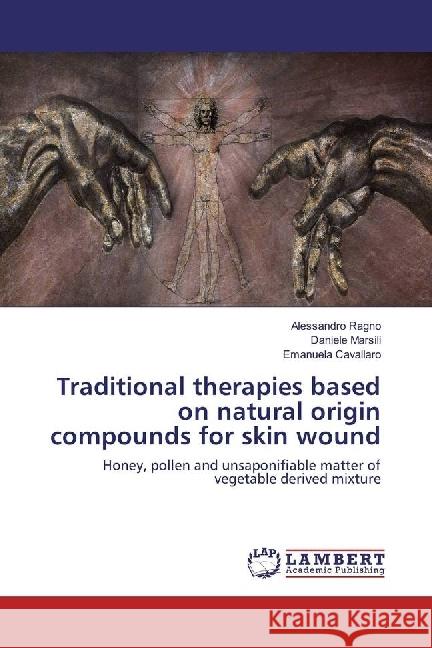Traditional therapies based on natural origin compounds for skin wound : Honey, pollen and unsaponifiable matter of vegetable derived mixture » książka
Traditional therapies based on natural origin compounds for skin wound : Honey, pollen and unsaponifiable matter of vegetable derived mixture
ISBN-13: 9783659644313 / Angielski / Miękka / 2017 / 52 str.
Traditional therapies based on natural origin compounds for skin wound : Honey, pollen and unsaponifiable matter of vegetable derived mixture
ISBN-13: 9783659644313 / Angielski / Miękka / 2017 / 52 str.
(netto: 153,29 VAT: 5%)
Najniższa cena z 30 dni: 160,21
ok. 10-14 dni roboczych.
Darmowa dostawa!
Chronic wounds are a frequent finding in clinical practice and are one of the problems with high impact on social health, affecting mainly the elderly people. Moreover, while current therapeutic agents have generally inadequate efficacy and number of serious adverse effects, the natural remedies have been used in medicine since ancient times and are well known for their abilities to promote wound healing and prevent infection without grave side effects. Considering the high number of natural products used for treatment of wounds we focused attention on honey, pollen and vegetable oil unsaponifiables. The mechanisms of action of honey in wound healing are largely due to hydrogen peroxide, high osmolarity, acidity, non peroxide factors, nitric oxide, phenols and flavonoids. It is known that not only honey, but also bee pollen is used in burn wound healing. In the composition of bee pollen, there are about 250 substances including phenols and flavonoids. On the other hand, the effectiveness of vegetable unsaponifiable oils on wound healing was evaluated in few studies, the mechanisms of action are still unknown, but majorly due to high content of squalene derived compounds.











